You could try something like this, with a to_records, that seems to be the fastest as you can see here:
First Option
import pandas as pd
import numpy as np
data = {'id':['i1','i2','i3','i4','i5'], 'c1':[3,2,4,1,4], 'c2':[4,2,5,5,5], 'c3':[4,5,3,3,3], 'c4':[5,1,2,2,2]}
df = pd.DataFrame(data)
print(df)
highest_rated_companies={row[1]:[df.columns[idx] for idx,val in enumerate(list(row)[2:],1) if val>=4] for row in df.to_records()}
Second Option
import pandas as pd
data = {'id':['i1','i2','i3','i4','i5'], 'c1':[3,2,4,1,4], 'c2':[4,2,5,5,5], 'c3':[4,5,3,3,3], 'c4':[5,1,2,2,2]}
df = pd.DataFrame(data)
print(df)
highest_rated_companies={row[0]:[df.columns[idx] for idx,val in enumerate(row[1:],1) if val>=4] for i, row in df.iterrows()}
print(highest_rated_companies)
Both outputs:
df:
id c1 c2 c3 c4
0 i1 3 4 4 5
1 i2 2 2 5 1
2 i3 4 5 3 2
3 i4 1 5 3 2
4 i5 4 5 3 2
highest_rated_companies:
{'i1': ['c2', 'c3', 'c4'], 'i2': ['c3'], 'i3': ['c1', 'c2'], 'i4': ['c2'], 'i5': ['c1', 'c2']}
Timestamps:
First Option:
0.0113047 seconds best case, when executed 100 times the script
1.2424291999999468 seconds best case, when executed 10000 times the script
Second Option
0.07292359999996734 seconds best case, when executed 100 times the script
7.821904700000005 seconds best case, when executed 10000 times the script
Edit:
Using dt.to_records(), seem to be the fastest way, since I tested Ehsan's answer and I got when executed 10000 times the script, a timestamp of 50.64001639999992 seconds, and when executed 100 times the script, a timestamp of 0.5399872999998934 seconds. Even it's faster than the Second Option, the First Option keep being the fastest.
